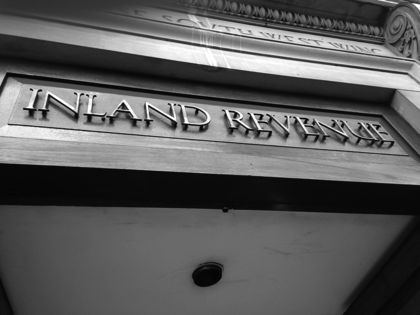New tax return rules coming your way

Office of the Inland Revenue (now HMRC, the tax people) in the Strand, London WC2
AFTER BEING postponed several times, the UK government's Making Tax Digital (MTD) plan is slouching toward us. To start with, if your “qualifying income” is over £50,000 for the 2024 to 2025 tax year, you will need to use MTD from 6 April 2026. If it is over £30,000 for the tax year 2025 to 2026 you will need to use MTD from 6 April 2027.
This means that, if you do not have a “tax agent”, you will need to use commercial software that works with Making Tax Digital for Income Tax. The government offers a list of compatible software that currently has 27 entries, 5 of which have free versions, and another 10 that are under development. There are two kinds of programs: “bridging” utilities that takes data from an existing system such as a spreadsheet; and “record-keeping” software. Some of the latter can be set up to peer into online bank accounts to collect data.
The well-known accounting software company Sage offers a package for sole traders who are not registered for VAT for £8.40 a month including VAT. QuickBooks, known for lighter-weight accounting software, starts at £1.92 a month including VAT and including VAT accounting.
The Freelance appeals to readers to send us brief reviews of listed software.
The biggest change is that under MTD freelances will need to submit “summaries” of income and expenditure every three months, typically on 7 August, November, February and May. Each summary will cover the quarter-year that ended a month earlier. You will still need to file an annual tax return. The deadline for the annual return remains 31 January each year.
The deadlines for payment remain unchanged. You will get running estimates of how much you will owe.
There are new penalties for late filing of the new quarterly returns. These are packaged as a rather complicated “point-based system”. If you collect four points by filing four late returns you will get a fine of £200; then £200 for every subsequent late filing. Filing four on time re-sets your point score to zero. There will also be penalties for failing to keep digital records; at present we find contradictory claims on what these will be.
Penalties for late payment are also changing. If any tax is unpaid after 15 days of the due date, you will pay 2 per cent of the outstanding amount. After another 15 days, another 2 per cent is due. On the face of it this could be fairer than a stiff penalty however much you owe.
Your “qualifying income” is the total of your income from self-employment and from property, before deducting expenses. Details of the phasing-in for partnerships and for people with lower incomes are yet to come, but it seems likely that all those getting more than £20,000 will be drawn in from 6 April 2028.
You can apply for exemption from MTD if it is “not practical for you to use software to keep digital records or submit them – this may be due to your age, disability, location or another reason”; or on religious grounds.
And if you have a company...
Similar measures, demanding use of commercial software to file small company accounts, come into effect on 1 April 2026. If you are a director of a company or control one you will need to verify your identity soon – this seems not yet to be compulsory.
30 July 2025
On 28 July Robyn Milstead, director of tax at LKA Chartered Accountants, told Hannah Fearn for Yahoo Finance UK: “These things are not just a source of anxiety, they are impossible for some. I really worry about tradespeople where English isn’t their first language. For single parents who are self-employed, the first deadline for the quarterly submission is 7 August - straight in the school holidays.”
As Hannah notes, accountants could make money from MTD. But, says Robyn: “There’s a huge amount of us that don’t want this at all. They’re bringing this in without any guidance on it. The amount of stress in the industry just takes away from useful work we could be doing elsewhere.” And: “HMRC has still not provided guidelines on the crossover between monthly universal credit claims and quarterly digital tax returns.
Tom Bickle, director and principal accountant at JP Blackmoor Limited, told Hannah: “Saying everyone can use accounting software is like giving an accountant a pair of scissors and expecting them to be a hairdresser overnight... The introduction of MTD is likely going to force many lower earning, self-employed individuals and families into seeking more stability, less hassle and much less financial risk by ceasing their business.”
 Tax and National Insurance Freelance Fees Guide
Tax and National Insurance Freelance Fees Guide
 Benefits and pensions Freelance Fees Guide
Benefits and pensions Freelance Fees Guide
![[Freelance]](../gif/fl3H.png)